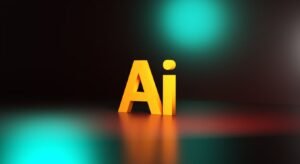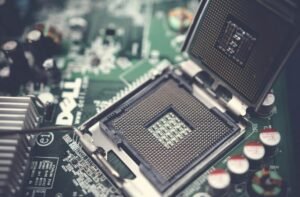When Artificial Intelligence Was Invented
Artificial Intelligence (AI) has become an integral part of our lives, but have you ever wondered when it was first invented? AI has a fascinating history that dates back several decades. In this article, we will explore the timeline and key milestones in the development of AI.
Key Takeaways
- AI has its roots in the mid-20th century.
- The term “artificial intelligence” was coined in 1956.
- The invention of AI has revolutionized various industries, including healthcare, finance, and transportation.
The Early Years of AI
The concept of artificial intelligence emerged in the 1950s, when scientists began exploring the idea of creating machines that could imitate intelligent human behavior. The term “artificial intelligence” was officially coined in 1956 by John McCarthy, who is widely regarded as the father of AI. McCarthy organized the Dartmouth Conference, which brought together leading AI researchers and set the stage for future breakthroughs in the field.
**During this time, researchers focused on developing symbolic AI, which relied on rules and logic to solve problems.** Symbolic AI laid the foundation for many AI techniques that are still used today, such as natural language processing and expert systems. It was an exciting period of exploration and discovery in the field of AI.
The AI Winter
In the 1970s and 1980s, AI experienced a period known as the “AI winter.” Funding for AI research decreased significantly, and there was a decline in public interest and support for AI projects. **However, this did not mean that progress came to a complete halt during this time.** Researchers continued to work on AI technologies, albeit with limited resources and support.
The AI winter was eventually followed by a resurgence in the 1990s, thanks to advancements in computing power and the emergence of new AI techniques, such as machine learning. Since then, AI has seen rapid growth and has become an integral part of our daily lives.
The Impact of AI Today
Today, AI is everywhere. It powers virtual assistants like Siri and Alexa, helps self-driving cars navigate our roads, and aids in medical diagnoses. Machine learning algorithms enable businesses to analyze vast amounts of data, making predictions and recommendations with remarkable accuracy. The impact of AI can be seen in various industries, from finance and marketing to healthcare and transportation.
| Year | Milestone |
|---|---|
| 1956 | The term “artificial intelligence” is coined by John McCarthy. |
| 1997 | IBM’s Deep Blue defeats chess world champion Garry Kasparov. |
| 2011 | IBM’s Watson wins the game show Jeopardy! against human champions. |
*It’s remarkable to see how AI has evolved from its early beginnings to its current state, and it continues to advance at an astonishing pace. The possibilities and potential of AI are endless, and we can expect more exciting developments in the future.*
Conclusion
Artificial Intelligence has come a long way since its inception in the mid-20th century. From early beginnings in symbolic AI to the advancements in machine learning and deep learning, AI has transformed various industries and our daily lives. The journey of AI is far from over, and we can only imagine what the future holds for this remarkable field.

Common Misconceptions
1. AI is a recent invention
One common misconception is that Artificial Intelligence is a recent invention. However, the truth is that the concept of AI has been around for decades. The field of AI research and development traces back to the 1950s.
- AI research began soon after the development of computers.
- The term “Artificial Intelligence” was coined in 1956.
- Early AI programs focused on solving complex mathematical problems.
2. AI means creating robots that can think and feel like humans
Another misconception about AI is that it involves creating robots that can think and feel just like humans. While the goal of AI is to simulate human intelligence, the current technology does not yet allow for the creation of machines that possess human-like consciousness.
- AI is primarily concerned with developing algorithms that can perform specific tasks efficiently.
- The focus is on creating intelligent systems, not replicating human thoughts and emotions.
- If AI machines display emotions, they are programmed responses rather than genuine feelings.
3. AI will take over and replace humans in all jobs
There is a widespread misconception that AI will completely replace humans in all jobs, leading to widespread unemployment. However, while AI has the potential to automate certain tasks and change the nature of work, it is unlikely to replace humans entirely.
- AI is more about augmenting human capabilities rather than replacing humans.
- AI can automate routine and repetitive tasks, freeing up humans to focus on more creative and complex tasks.
- The human touch, creativity, and emotional intelligence are still valued in many professions that involve human interaction.
4. AI is only used in tech-related industries
Many people mistakenly believe that AI is only used in tech-related industries. However, AI has applications across various sectors, including healthcare, finance, transportation, and even entertainment.
- In healthcare, AI is used to assist in medical diagnosis, drug discovery, and personalized treatment plans.
- In finance, AI is utilized for fraud detection, algorithmic trading, and risk assessment.
- In transportation, AI is applied in autonomous vehicles and optimizing traffic flow.
5. AI will eventually surpass human intelligence
Some fear that AI will surpass human intelligence and become uncontrollable. This misconception often stems from science fiction movies and novels. However, the idea that AI will achieve superhuman intelligence is still speculative and remains a topic of debate in the field of AI research.
- AI is designed to operate within defined limits set by its programmers.
- Creating a self-aware and super-intelligent AI that can surpass human intelligence is a complex challenge.
- The focus of AI research is currently on narrow AI systems that excel in specific domains rather than general intelligence.

Timeline of Artificial Intelligence
Discover the major breakthroughs and milestones in the world of artificial intelligence with this comprehensive timeline.
| Year | Event | Significance |
|---|---|---|
| 1950 | Alan Turing’s “Computing Machinery and Intelligence” published | Introduced the concept of the Turing Test |
| 1956 | The Dartmouth Workshop | Marked the birth of AI as a field of study |
| 1965 | ELIZA, the first chatbot | Popularized the idea of natural language processing |
| 1973 | AI defeats a world chess champion | Bobby Fischer loses to AI program |
| 1997 | Deep Blue defeats Garry Kasparov | First time a computer beats a reigning world chess champion |
| 2005 | Stanley, the self-driving car, wins DARPA Grand Challenge | Demonstrates advancements in autonomous vehicle technology |
| 2011 | IBM Watson wins Jeopardy! | Shows AI’s ability to answer complex questions in real-time |
| 2016 | AlphaGo defeats Lee Sedol | A breakthrough in AI-powered gaming |
| 2019 | OpenAI’s GPT-2 generates realistic text | Raises concerns about the potential for misuse and misinformation |
| 2020 | DeepMind’s AlphaFold solves protein folding problem | A major advancement in the field of bioinformatics |
Applications of Artificial Intelligence
Explore the diverse range of applications where artificial intelligence is making an impact.
| Application | Description |
|---|---|
| Healthcare | AI assists in diagnosing diseases and analyzing medical images |
| Finance | AI algorithms aid in fraud detection and high-frequency trading |
| Transportation | Self-driving cars and traffic optimization systems |
| Education | Personalized learning experiences and intelligent tutoring systems |
| Customer Service | Chatbots provide instant support and improve customer interactions |
| Manufacturing | Robots automate assembly lines and increase production efficiency |
| Entertainment | AI enhances gaming experiences and powers recommender systems |
| Agriculture | Drones and AI help optimize crop yield and monitor soil health |
| Cybersecurity | AI systems detect and mitigate cyber threats in real-time |
| Social Media | AI algorithms curate personalized feeds and detect hate speech |
The Impact of Artificial Intelligence on Employment
Learn about the evolving landscape of jobs and employment affected by the rise of artificial intelligence.
| Industry | Impact on Employment |
|---|---|
| Manufacturing | Automation leads to job displacement, but new roles in AI maintenance and programming emerge |
| Transportation | Self-driving vehicles threaten truck driver and taxi driver jobs |
| Retail | AI-powered chatbots reduce the need for customer service representatives |
| Healthcare | AI assists healthcare professionals and creates new roles in AI diagnostics |
| Finance | Automated trading systems replace some financial analysts |
| Legal | AI tools aid in legal research and document analysis |
| Customer Service | Call center jobs are replaced by AI-powered chatbots and voice assistants |
| Education | AI tutors supplement traditional teaching methods |
| Human Resources | AI streamlines recruitment and automates certain HR tasks |
| Journalism | AI-generated news articles challenge the role of human journalists |
Challenges and Ethical Considerations in AI Development
Delve into the complex challenges and ethical dilemmas associated with artificial intelligence development.
| Challenge/Ethical Consideration | Description |
|---|---|
| Data Bias | AI systems can reflect biases present in training data, leading to unfair outcomes |
| Job Displacement | Automation of jobs can lead to unemployment and socioeconomic inequality |
| Privacy | Collection and misuse of personal data raise concerns about privacy rights |
| Autonomous Weapons | Development of AI-powered weapons raises ethical and safety concerns |
| Transparency | AI systems often lack transparency, making it challenging to understand decisions |
| Algorithmic Bias | Biased algorithms can perpetuate discrimination and reinforce societal biases |
| Security | AI systems can be vulnerable to cyber attacks and malicious exploitation |
| Economic Disruption | Shifts in employment patterns can create economic disruption and job insecurity |
| Accountability | Defining responsibility and accountability for AI decisions is challenging |
| Social Impact | AI’s impact on human behavior, relationships, and social norms is still uncertain |
Leading Artificial Intelligence Companies
Discover some of the top companies at the forefront of artificial intelligence innovation.
| Company | Specialization |
|---|---|
| Wide range of AI applications, including natural language processing and computer vision | |
| IBM | AI research, development of various AI tools and platforms |
| Microsoft | AI-powered products and services, speech recognition, and intelligent assistants |
| OpenAI | Researching and promoting friendly AI for the benefit of humanity |
| Amazon | AI in e-commerce, customer service, and smart devices (Amazon Echo, Alexa) |
| AI algorithms for personalized content, facial recognition, and social network analysis | |
| Tesla | AI-driven self-driving technology and electric vehicle innovation |
| DeepMind | AI research, achieving breakthroughs in games and healthcare |
| NVIDIA | AI hardware (graphics processing units) and software solutions |
| Adobe | AI-powered creative tools for design, image editing, and video production |
AI in Popular Culture
Explore how artificial intelligence has been depicted and celebrated in popular culture.
| Medium | Title | Year |
|---|---|---|
| Film | 2001: A Space Odyssey | 1968 |
| Novel | Neuromancer | 1984 |
| TV Series | Westworld | 2016-present |
| Comic | Watchmen | 1986-1987 |
| Video Game | Portal | 2007 |
| Animated Film | The Iron Giant | 1999 |
| Literature | I, Robot | 1950 |
| TV Series | Black Mirror | 2011-present |
| Film | Ex Machina | 2014 |
| Animated Film | Wall-E | 2008 |
The Future of Artificial Intelligence
Explore the potential advancements and impact of AI in the future.
| Area of Development | Potential Impact |
|---|---|
| Healthcare | Improved disease diagnosis, personalized medicine, and drug discovery |
| Robotics | Advancements in autonomous systems, household robots, and collaborative robots |
| Transportation | Widespread adoption of self-driving vehicles and intelligent traffic management |
| E-commerce | Hyper-personalization, efficient product recommendations, and targeted advertising |
| Data Analysis | Improved decision-making, predictive analytics, and fraud detection |
| Art | AI-created works of art and AI-enabled creative tools |
| Natural Language Processing | Advanced language understanding and more seamless human-computer interactions |
| Space Exploration | AI assists in analyzing vast amounts of data and autonomous space missions |
| Social Assistance | AI helps address social issues, from poverty eradication to disaster response |
| Ethics and Governance | Development of ethical guidelines for AI and ensuring responsible AI deployment |
The Journey of Artificial Intelligence
From its inception to the present, artificial intelligence has captured the imagination of scientists, innovators, and society as a whole. The timeline showcases crucial milestones, including Alan Turing‘s groundbreaking paper and the advent of various AI-powered technologies that have become integral to our lives. Meanwhile, the applications table highlights how AI has revolutionized sectors such as healthcare, finance, and transportation. As AI becomes more prevalent, the impact on employment has become a subject of debate, with automation leading to new roles while displacing others. Additionally, ethical considerations surrounding AI development are explored, raising concerns about bias, privacy, and transparency. Major companies in the field, such as Google, IBM, and Microsoft, are propelling AI innovation forward. Representations of AI in popular culture express both fascination and apprehension. Looking ahead, the future promises further advancements in healthcare, robotics, and e-commerce, among others, reinforcing the continuing journey of artificial intelligence in shaping our world.




